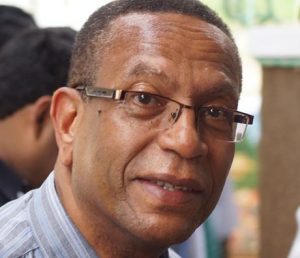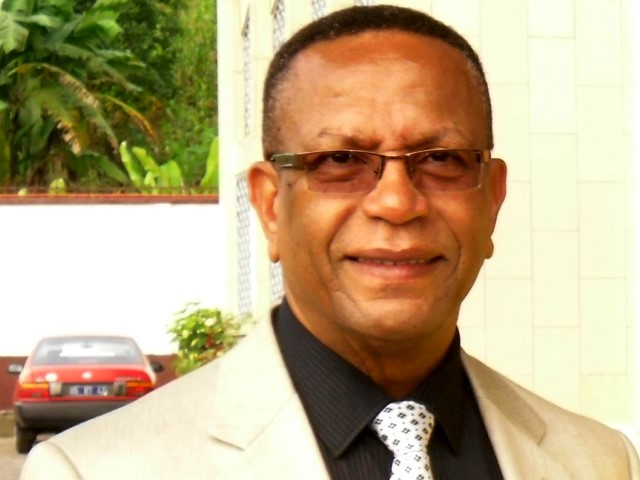
Parliament’s website states that Parliament has two main tasks, namely to act as co-legislator and to exercise control over Government’s policies. The budget is an excellent example of co-legislation. It is drafted by the Government, but must be approved by Parliament in order for it to become a law.
On Monday, December 5, the Central Committee of Parliament, which consists of all fifteen members of Parliament, will meet to discuss the 2017 Budget of Country St. Maarten. In the meeting of the Central Committee, Government will give information with regard to the financial projections and the policies supporting the budget. Parliament, on the other hand, should ask detailed questions regarding the figures as well as the spending and income policies as these relate to the 2017 budget.
The handling of the budget in Parliament is a good time to observe our Parliamentarians at work and see how much control our Parliament is exercising over Government. To be able to ask the critical questions Parliamentarians should not wait until the Central Committee meeting to review the budget, but should have done so in smaller committees, called Permanent Committees.
In these committees, members of Parliament should have scrutinized the budget; formulate questions, comments and motions and presented these during the meetings of the Central Committee. It is in these meetings that we will be able to see if our Parliamentarians did their homework or whether they are just winging it by means of grandstanding and political speeches.
I recall last year’s Central Committee meeting on the 2016 budget. Most Parliamentarians did the political grandstanding, but never really got to the meat of the matter, which was to deal with budget details and to ask the critical questions concerning policies, income and expenditures.
The 2015-2016 Annual Parliamentary Report does not give such a good report concerning the functioning of our Parliamentarians in the various committees during the past Parliamentary year. According to the Report, the Committee of Finance never met to discuss the budget. Another committee, called the Committee of Country’s Expenditures, also never met because the meeting scheduled to appoint a chairman and a vice chairman was cancelled. So much for Parliament monitoring and controlling Government expenditures!
One way of holding Government accountable is to also submit written questions, asking Government about decisions taken or not taken and concerning policies followed or not followed. The Report states that only a total of 163 questions were submitted, most of which were submitted by MPs Sarah Wescott-Williams and Leona Marlin-Romeo. This would mean an average of ten questions per Parliamentarian per year. So much for Parliament exercising control of Government policies!
Parliament received the 2017 budget just about three weeks ago, which is, in my opinion, a rather short time to scrutinize such a comprehensive financial policy document. It will be interesting to hear, for example, the debate in Parliament regarding the Ministry of Justice. The Council of Advice already pointed out certain discrepancies which, according to me, have not been fully answered by the Government. Will Parliament take the opportunity to question the Minister of Justice regarding the personnel policies at the prison? During the year, the reason given by the Minister of Justice for not being able to execute personnel policies and move forward with construction plans, is the lack of finances.
Last week we also learned that, due to the lack of money, the Prosecutor’s Office is unable to present certain cases that require psychological testing to the courts. One would have expected that matters pertaining to justice, would have been high on the agenda of especially Parliament’s Committee of Justice, headed by MP Frans Richardson.
Sadly though, this committee only met twice during the 2015-2016 Parliamentary year. The first meeting was to appoint the chair and the vice chair and the second meeting was the public discussion in Parliament on the topic of the legalization of cannabis. So much for Parliament exercising control of Government and in particular, of the Minister of Justice.
In order to live up to certain commitments made to the Dutch, the Progress Committee has even suggested that reprioritizing be done within the budget to ensure that the Ministry of Justice has enough finances to execute its task in a responsible and effective manner.
After the discussions in the Central Committee, the 2017 Budget will be submitted to Parliament to be debated in a public meeting where it will either be approved or rejected. Seeing that the coalition consists of a majority of eight parliamentarians, it is expected that the 2017 Budget will be adopted by Parliament.
As the budget law covers every aspect of the functioning of Government, the parliamentary budget debate is an excellent occasion for Parliament to exercise its controlling role and question every area of Government’s functioning.
SMCP advises everyone to follow the budget debates in order to get a better understanding of how government functions, as well as how your Parliamentarians are representing you in Parliament.
Wycliffe Smith
Leader of the St. Maarten Christian Party






























